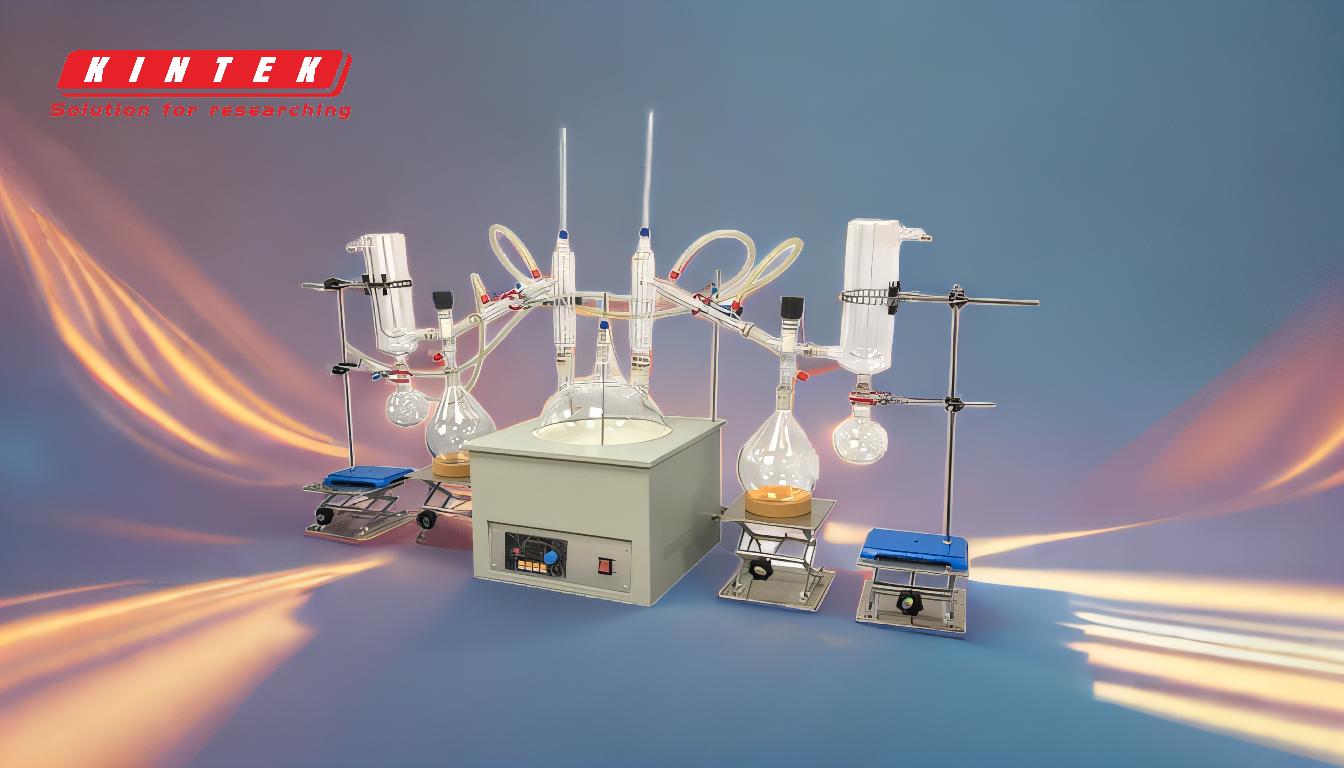Reduced pressure in a vacuum distillation unit is crucial because it lowers the boiling points of the substances being distilled. This allows the process to occur at lower temperatures, which is particularly beneficial for heat-sensitive compounds that could degrade or decompose at higher temperatures. By reducing the pressure, the distillation process becomes more efficient, safer, and capable of producing purer distillates without damaging the valuable products. This method also minimizes the risk of combustion or adverse reactions, making it ideal for sensitive organic compounds.
Key Points Explained:

-
Lower Boiling Points at Reduced Pressure:
- When pressure is reduced in a vacuum distillation unit, the boiling points of the solvents or compounds being distilled are also lowered. This is because boiling occurs when the vapor pressure of a liquid equals the external pressure. By reducing the external pressure, the liquid can boil at a much lower temperature.
- This is particularly useful for heat-sensitive substances that might degrade or decompose at higher temperatures. For example, many organic compounds, pharmaceuticals, and essential oils are sensitive to heat and can be damaged if exposed to high temperatures during distillation.
-
Prevention of Thermal Degradation:
- Lowering the boiling point through reduced pressure allows the distillation process to occur at milder temperatures. This minimizes the thermal history of the compounds, preventing thermal degradation or decomposition.
- For instance, in the production of essential oils or certain pharmaceuticals, maintaining a low temperature is critical to preserving the integrity and efficacy of the final product.
-
Enhanced Efficiency and Purity:
- Reduced pressure not only lowers the boiling point but also enhances the efficiency of the distillation process. It allows for the separation of compounds that might otherwise co-distill at higher temperatures, leading to a purer distillate.
- In molecular distillation, for example, reducing the pressure ensures that the boiling point is no longer dependent on vapor pressure but only on the molecular weight of the substance. This eliminates back-pressure and improves separation efficiency, resulting in a higher-purity product.
-
Safety Considerations:
- Distilling at lower temperatures reduces the risk of combustion or adverse reactions, especially when working with volatile or flammable organic compounds. High temperatures can lead to unwanted side reactions or even explosions in some cases.
- By using a vacuum, the process becomes inherently safer, as the risk of overheating or igniting sensitive materials is significantly reduced.
-
Application in Various Distillation Techniques:
- Rotary Evaporators: In rotary evaporators, reduced pressure allows for efficient solvent removal at lower temperatures, which is crucial for preserving the quality of heat-sensitive compounds.
- Short Path Distillation: This technique benefits from reduced pressure as it allows for the distillation of compounds at lower temperatures, minimizing heat exposure and ensuring the purity of the distillate.
- Molecular Distillation: Here, reduced pressure is essential for separating compounds based on their molecular weight rather than their vapor pressure, leading to more precise and efficient separations.
-
Energy Efficiency:
- Operating at lower temperatures due to reduced pressure can also lead to energy savings. Less energy is required to heat the system to the necessary boiling points, making the process more cost-effective and environmentally friendly.
In summary, reducing pressure in a vacuum distillation unit is a key factor in ensuring the process is efficient, safe, and capable of producing high-purity products, especially when dealing with heat-sensitive materials. This technique is widely used across various industries, including pharmaceuticals, essential oils, and organic chemistry, to achieve optimal results.
Summary Table:
| Key Benefit | Explanation |
|---|---|
| Lower Boiling Points | Reduced pressure lowers boiling points, ideal for heat-sensitive compounds. |
| Prevents Thermal Degradation | Milder temperatures minimize degradation of sensitive materials. |
| Enhanced Purity & Efficiency | Separates compounds more effectively, producing purer distillates. |
| Improved Safety | Reduces risk of combustion or adverse reactions with volatile compounds. |
| Energy Efficiency | Lower temperatures save energy, making the process cost-effective. |
| Wide Application | Used in rotary evaporators, short path, and molecular distillation techniques. |
Optimize your distillation process with vacuum technology—contact us today for expert solutions!











